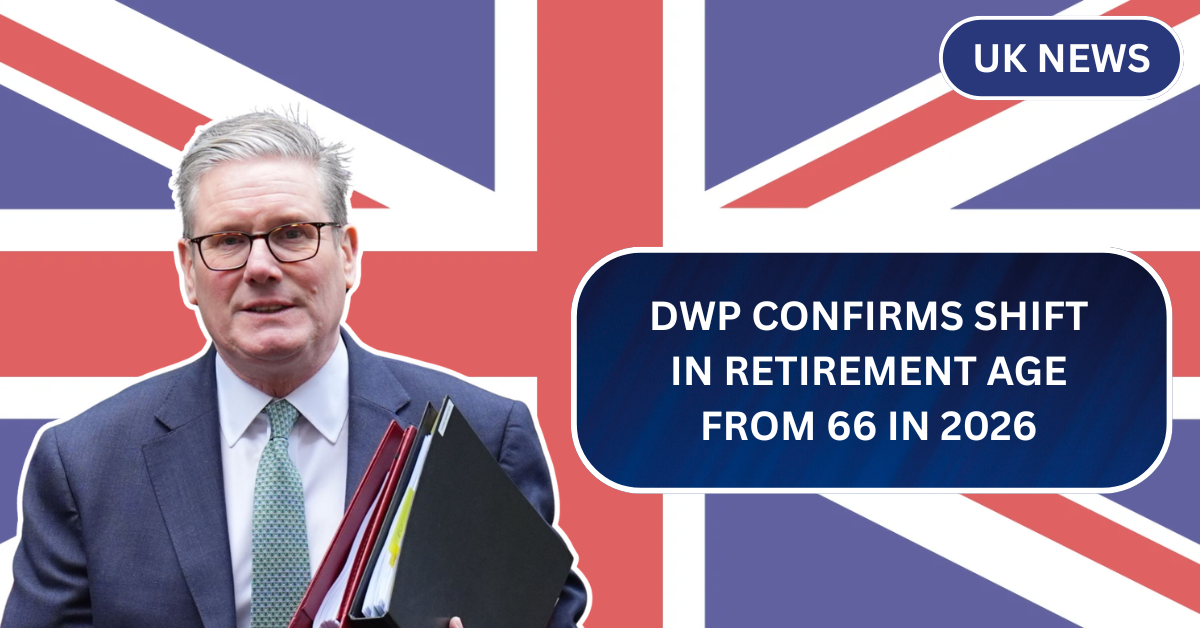The Department for Work and Pensions (DWP) is bringing major changes to when people in the UK can retire and claim their state pension. If you were planning to retire at 66, you may need to rethink your plans. Starting in 2026, the government is raising the retirement age again — and this change could impact millions of workers across the country.
Why Is the Retirement Age Increasing?
The UK population is living longer, which means people are claiming pensions for more years than ever before. This has put extra pressure on government resources. To manage this, the DWP has decided to gradually increase the state pension age to make the system more sustainable in the long run.
Simply put, as people live longer, they’ll also have to work a bit longer before they can access their state pension.
What’s the New Retirement Age?
From 2026, the retirement age will start increasing from 66 to 67. This shift won’t happen overnight but will be rolled out over a few years. The increase will affect people born between April 6, 1960, and April 5, 1977. If you fall into this group, your state pension age will be somewhere between 66 and 67, depending on your exact birthdate.
The plan is to fully move the retirement age to 67 by the year 2028.
Who Will Be Affected?
If you’re currently in your 50s or younger, this change could affect when you can claim your state pension. Those already receiving their pension won’t be impacted. But for people nearing retirement, especially those born in the 1960s and early 1970s, it’s time to pay close attention to these updates.
For younger generations, the retirement age could rise even further in the future. Discussions are already taking place about possibly increasing it to 68 by the late 2030s.
What About Your Private Pension?
This rule only applies to the state pension. If you’ve got a private pension or workplace pension, you might still be able to access those earlier — usually from age 55 (increasing to 57 from 2028). But be careful: accessing your private pension early can reduce your future income if you’re not financially prepared.
So even if you can retire early using your private savings, you may still have to wait longer to receive the full state pension benefits.
How Much Will You Receive?
Currently, the full new state pension is around £221.20 per week (as of April 2025). This amount changes slightly each year, depending on inflation and the government’s triple lock policy. But remember, how much you actually get depends on your National Insurance contributions.
To get the full amount, you need at least 35 qualifying years of National Insurance contributions. If you’ve got fewer years, your payment could be lower.
What Should You Do Now?
If you’re in your 50s or early 60s, it’s a good time to review your retirement plans. Here are a few things you can do:
- Check your state pension age using the official DWP pension calculator.
- Review your National Insurance record to make sure you’re on track to qualify for the full pension.
- Look at your private pensions and workplace savings — see if they’re enough to support you if you want to stop working before 67.
- Consider saving more or delaying retirement to ensure a more comfortable post-retirement life.
Final Thoughts
The new retirement age from 2026 may seem like a small change, but it can make a big difference in how long you work and how much you save. With the DWP planning more increases in the future, being aware and financially prepared is the smart move.
Whether you were planning to retire at 66 or even earlier, it’s important to stay updated and plan wisely. The rules are changing, but with the right steps, your retirement can still be secure and fulfilling.




